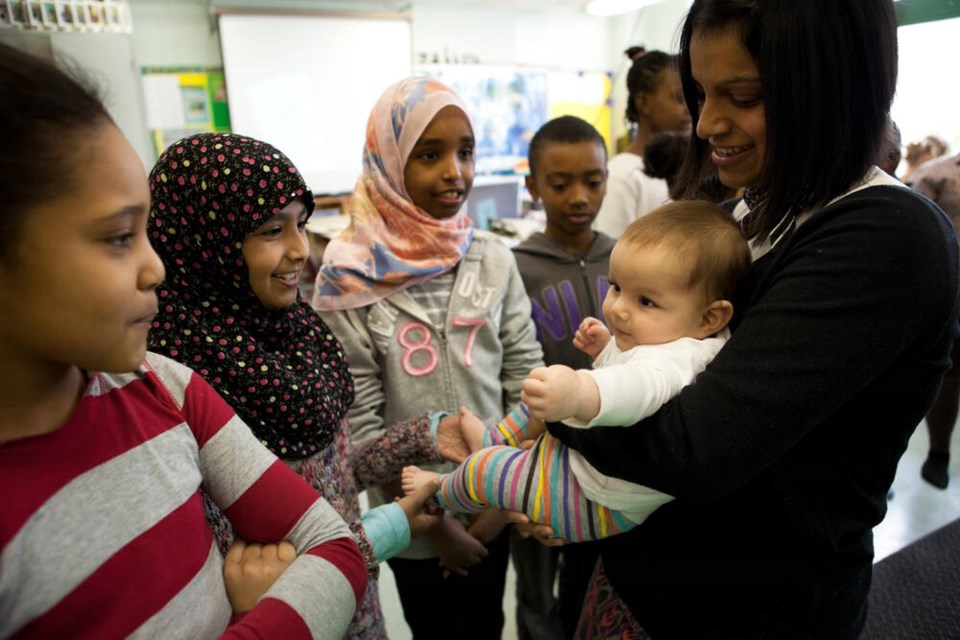Years ago, legendary anthropologist Margaret Mead was asked what she considered to be the earliest sign of civilization in a culture.
Unexpectedly, Mead did not mention the discovery of fire or that the earliest stone tools were developed by humans at least 2.6 million years ago.
Instead, Mead said that the first sign of civilization in an ancient culture was a human femur (thighbone) that had been broken and then healed.
She explained that in primitive times — and even now in the animal kingdom — a broken leg was a kind of death sentence because the injured animal or human could not run from danger or hunt for food or even get to the river for a drink.
In primitive times, a severely injured human could become meat for prowling beasts and was unlikely to survive a broken leg long enough for the bone to heal.
However, Mead explained, the discovery of a broken femur that had healed is evidence that someone had taken time to stay with the injured one, and may have carried them to safety and tended to the person through recovery.
Helping someone else through difficulty is where civilization starts, Mead said, and a civilized person is at his or her best when serving others.
That may be the thinking behind why students in Denmark have mandatory empathy classes as part of the school curriculum.
In their book The Danish Way of Parenting, Danish psychotherapist and educator Iben Sandahl and American author and psychologist Jessica Alexander explain that children in Denmark are taught about empathy from a young age, both inside and outside of school.
“Children in the Danish school system,” say the authors, “participate in a mandatory national program called Step by Step as early as preschool. The children begin by discussing pictures of kids who are each exhibiting a different emotion: sadness, fear, anger, frustration, happiness, and so on.”
The program entails students teaching students to conceptualize their own and others’ feelings, as well as empathy, problem-solving and self-control.
“An essential part of the program is that the facilitators and children aren’t judgmental of the emotions they see; instead, they simply recognize and respect those sentiments,” the co-authors write.
This, they propose, might be one of the reasons for the overall long-term well-being and happiness of Denmark’s population.
According to the World Happiness Report, which uses data from the Gallup World Poll, this happiness is closely linked to social equality and community spirit.
Denmark does well on both counts, based on a strong sense of common responsibility for social welfare.
This raises the question, a particularly pertinent one in these days of “all about me and my freedoms,” as to why most school systems focus substantially on academic subjects such as math, English and science, while leaving out of the curriculum some of the most important lessons about kindness, empathy, humility and other-centred behaviour in an increasingly complex world of social responsibility — or the absence of same.
The disturbing consequences of this oversight becomes evident in the kind of news we hear every day about the pandemic-related “me only” decline of civilized behaviour for the common good.
All of which makes a 2012 UBC study that looked at the impact of the Roots of Empathy program on the social and emotional competence of school-aged children even more relevant in 2021.
Roots of Empathy focuses on decreasing children’s aggression, including bullying, and increasing pro-social behaviours such as kindness, caring and inclusion, by bringing a neighbourhood baby and parent into the classroom, along with a Roots of Empathy instructor. The goal is for the children to learn to identify and understand the feelings of the baby, themselves and ultimately, others. Since 2000, the program has reached 165,000 K-7 students in English and French in B.C. Created in Toronto, it’s now offered all over the world.
The UBC research team of Kimberly Schonert-Reichl, Veronica Smith, Anat Zaidman-Zait and Clyde Hertzman interviewed 585 children ages nine to 12 (grades four to seven) and 28 teachers in both Vancouver and Toronto.
The study found that children in the Roots Of Empathy classrooms showed significant improvement in social behaviours and an observable decline in aggressive behaviours.
These findings support other recent research examining the positive impacts of classroom-based social and emotional learning programs on children’s social development and behavioural adjustment.
As Margaret Mead said on another occasion: “The solution to adult problems depends in large measure upon how our children grow up today.”
gfjohnson4@shaw.ca
Geoff Johnson is a former superintendent of schools.



